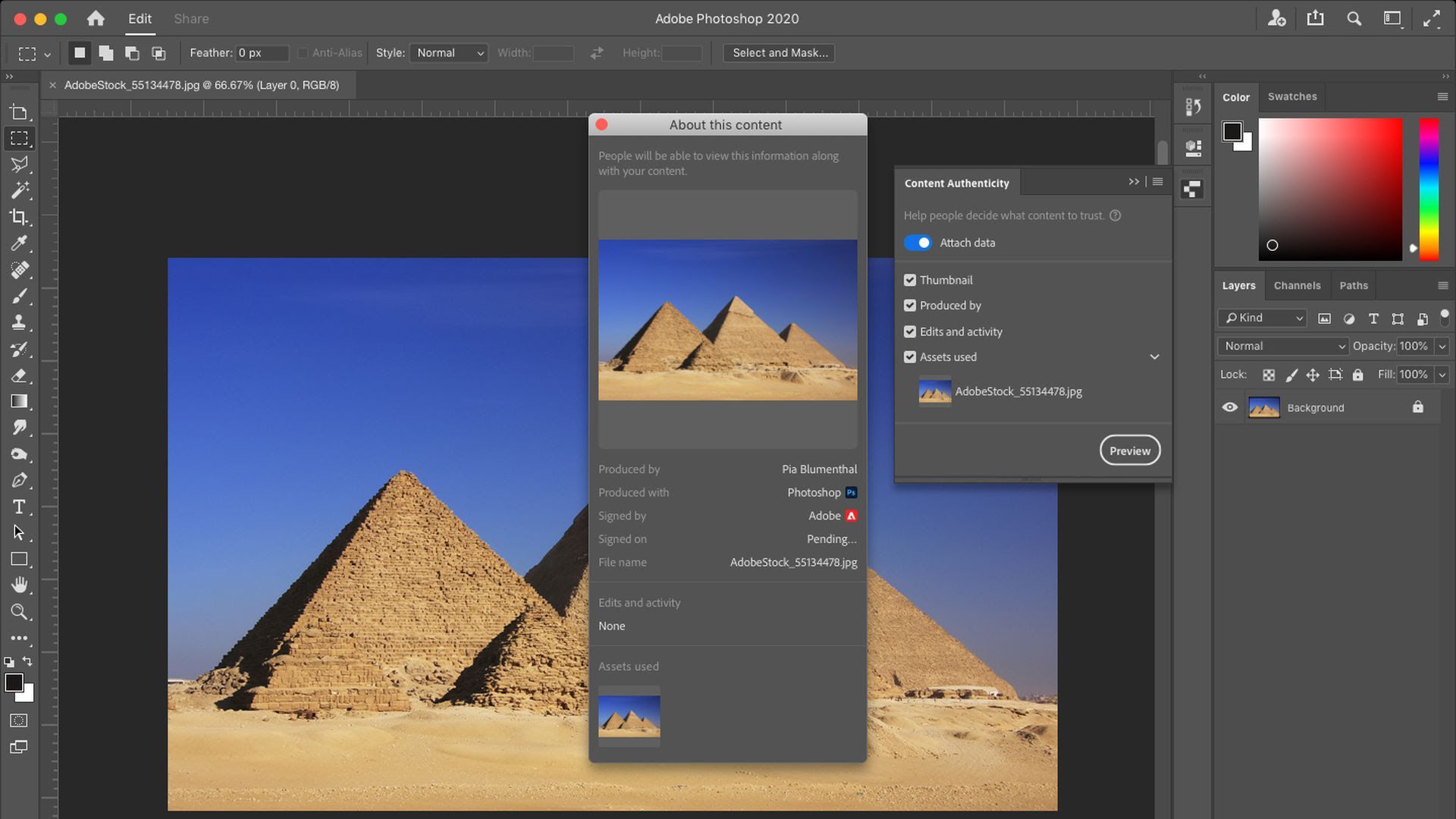Adobe gets creative during the coronavirus pandemic
Add Axios as your preferred source to
see more of our stories on Google.

Image: Adobe
The coronavirus pandemic has upended the tech world — not only for those companies that make remote work possible, but even for those whose products and services might not seem to have much to do with the pandemic at all.
The big picture: Adobe offers a case study in adapting to our new reality, plugging forward with a long-planned product roadmap while also trying to remain relevant with new products that ease collaboration and help identify misinformation.
Driving the news: At its Adobe Max conference Tuesday, the software giant known for creative tools like Photoshop will announce a range of products and demos, including:
- A preview version of a Photoshop tool that can demonstrate the provenance of content as a means of fighting deepfakes and other manipulated media. It builds on a broader Content Authenticity Initiative that Adobe announced with partners a year ago.
- The ability for content creators to livestream their work directly from within Illustrator, Photoshop and Fresco. Think of it as Twitch for people who are more interested in design and art than video games.
- Photoshop, Illustrator and Fresco are moving to cloud-based document formats, making it easier for remote workers to view and comment. Starting next year, creators will be able to invite colleagues to edit together.
- The commercial release of Illustrator for iPad, following a year of testing and on the heels of Photoshop for iPad.
To try to break the monotony of online-only events, Adobe is tapping late-night host Conan O'Brien as emcee, along with talks from Ava Duvernay; Annie Leibovitz; Tyler, the Creator and others.
- Also, since the event doesn't have the usual space and cost constraints, Adobe is making Max free for the first time.
Between the lines: Adobe is responding to fresh competition from startups like Figma and Canva that put collaboration front and center.
- Even as it's trying to serve the Google Docs generation, though, Adobe has to be careful not to alienate the many longtime Adobe creative types who bristle at the notion of opening their Photoshop documents up for collaboration.
- "Obviously, you can still work in Photoshop and not invite everyone in," said Adobe product chief Scott Belsky.
Between the lines: The misinformation work plays into a broader industry effort to pursue dual paths when it comes to fighting manipulated media, developing some techniques that can verify content hasn't been altered while also providing tools that can detect when it has.
- Last week Qualcomm and Truepic announced a prototype secure Android camera app that can be used to verify the provenance of an image.
- With its demo today, Adobe is showing how a piece of content can also be verified through the editing process.
Yes, but: There’s also a need for tools that detect evidence of heavy editing or fakery after the fact, as well as for teaching individuals to be critical media consumers.
- "The bad actors are not going to use this, and people have to be educated to be skeptical," Adobe general counsel Dana Rao told Axios.
What's next: While Adobe has put a lot of resources toward expanding collaboration, only the early fruits will be visible this year. Expect to see and hear a lot more over the coming months and years.
